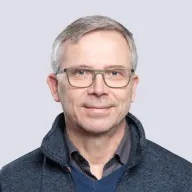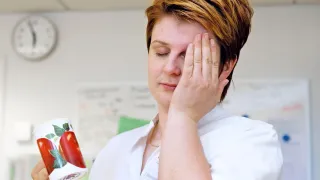Working hours, health, well-being and participation in working life (WOW)
Objectives
The characteristics of working hours are changing rapidly in all Nordic countries and becoming increasingly flexible. In addition, every fifth employee, mostly in lower socioeconomic groups, still works in shifts, with limited possibilities for individual flexibility. In general, working hours are related to large socioeconomic differences; they are socially constructed and gendered.
Working hours are related to health, the work-life balance and welfare. Being able to influence one’s working hours is associated with better subsequent health and later retirement. The timely debate on the length of weekly working hours, and the retirement age thus have an economic aspect in addition to their individual-level psychosocial and health perspectives.
In this project, we hypothesize that chronic diseases, occupational and traffic accidents, and sickness absences can be reduced by implementing good working time models and individual coping mechanisms that support recovery and a better work-life balance.
We also assume that flexible working hours, part-time work, and other individual working time solutions can support work retention among ageing workers, workers with disabilities, and those (often women) with small children or other dependents.
The overall aim of the research project Working hours, health, well-being and participation in working life (WOW) – creating new working time models and solutions for Nordic countries is to develop evidence-based models and solutions related to working hours in order to support health, well-being and work participation among employees in the Nordic countries. The project will create working time-related solutions especially for women and ageing workers, who often have challenging working hours. Among these groups, the role of work-life balance and health, which are the key determinants of well-being at work, will be studied as horizontal key concepts.
WHAT WILL BE STUDIED
The first part of the study (WP1) will investigate the societal trends and socioeconomic differences of Nordic working hour patterns, using representative national and European data to identify policy-relevant trends and vulnerable groups for targeted interventions. The second part (WP2) will study the effects of shift work and working time autonomy, using well-established prospective cohort studies, on health and chronic diseases, work-life balance and work participation among both the general population and subgroups with impaired health to investigate whether age and gender moderate the effects of working hours on well-being. In the third part, including nine intervention and two other studies (WP3), the project will create and test both individual- and organizational-level interventions related to working hours in shift work, boundaryless expert work and safety-critical 24/7 industries to promote health, work-life balance and work participation, with a focus on women and older workers.
DISSEMINATION OF THE PROJECT RESULTS
In the last part of the project (WP4), the evidence-based solutions, models, tools and guidelines will be carefully implemented in the Nordic countries. On the basis of the initiated co-operation between the Nordic countries, we will create a new interdisciplinary Nordic platform for working hours, health and well-being research and thus strengthen Nordic collaboration.
Results and impact
Ask about the project

Mikko Härmä
Co-operaiting organizations
The project is managed by the Finnish Institute of Occupational Health, Finland. Professor Mikko Härmä is the leader of the project.
Co-operating research organisations
|
Position in WOW |
Name and affiliation | ||
| WOW leader, work package leader, principal investigator | Mikko Härmä, FIOH | mikko.harma [at] ttl.fi | |
| Work package leader | Anne-Helene Garde, NRCWE | ahg [at] arbejdsmiljoforskning.dk | |
| Work package leader | Göran Kecklund, Stress Research Institute | goran.kecklund [at] su.se | |
| Work package leader | Jenny-Anne Lie, STAMI |
|
|
| Coordinator, principal investigator | Kati Karhula, FIOH | kati.karhula [at] ttl.fi | |
| Research team leader | Johnni Hansen, Danish Cancer Society | johnni [at] cancer.dk | |
| Research team leader | Åse Marie Hansen, University of Copenhagen | asemarie.hansen [at] sund.ku.dk | |
| Research team leader | Henrik Kolstad, Aarhus University | kolstad [at] clin.au.dk | |
| Principal investigator | Marie Aarrebo Jensen, NRCWE | maa [at] arbejdsmiljoforskning.dk | |
| Principal investigator | Bjørn Bjorvatn, University of Bergen | bjorn.bjorvatn [at] uib.no | |
| Principal investigator | Ann Dyreborg Larsen, NRCWE | adl [at] arbejdmiljoforsking.dk | |
| Principal investigator | Heli Järnefelt, FIOH | heli.jarnefelt [at] ttl.fi | |
| Principal investigator | Constanze Leineweber, Stress Research Institute | constanze.leineweber [at] su.se | |
| Principal investigator | Arne Lowden, Stress Research Institute | arne.lowden [at] su.se | |
| Principal investigator | Jouko Nätti, University of Tampere | jouko.natti [at] uta.fi | |
| Principal investigator | Annina Ropponen, FIOH | Annina.ropponen [at] ttl.fi | |
| Principal investigator | Christin Mellner, Stockholm University | christin.mellner [at] psychology.su.se | |
| Principal investigator | Sampsa Puttonen, FIOH | sampsa.puttonen [at] ttl.fi | |
| Principal investigator | Mikael Sallinen, FIOH | mikael.sallinen [at] ttl.fi | |
| Principal investigator | Torbjörn Åkerstedt, Stockholm University | torbjorn.akerstedt [at] ki.se | |
| Principal investigator | Kirsi Yli-Kaitala, FIOH | kirsi.yli-kaitala [at] ttl.fi |
Funding
The research project is funded by NordForsk (28 million. NOK).

